Legacy for a Lost Son: Interview
When tragedy struck your family, how old were you?
I was fourteen, and my oldest brother, Ibrahim, was twenty-seven, a resident at Kasr-Al-Ainy hospital. We had just celebrated his engagement two days earlier. My second older brother, Ismail, was also a doctor, a cardiologist in training. They followed in the footsteps of my father, grandfather, and uncle, all in medicine. My grandmother managed our private hospital.
What happened the morning of the accident?
I got a call from my brother Ibrahim early in the morning, at about 9 am, asking me to make sure the front door was left unlocked. I was already up; I had basketball practice soon. I made nothing of the request; at that point it was a sort of weekend ritual. He was on his way back from a grueling forty-eight-hour shift.
I get the impression that you admired your older brother?
Yes, he was the pride and joy of the whole family, and of our mother, particularly; they were very close. He was loved by all who knew him. He had a brilliant sense of humor and the beaming smile to match.
What happened next?
When he was close to the gate of our compound a security guard phoned my mother, Ola, who was out walking our dog, telling her he’d just seen an accident close to the entrance and that he recognized my brother’s car. He had had an accident with a truck. He was rushed to the hospital where he was a resident, but he had sustained a severe brain injury.
Your father and grandfather were both surgeons, did they realize how bad his injuries were?
Though I was oblivious to this at the time, my father and grandfather very quickly recognized the extent of the injury. Over the next few days, we had every competent physician in the country rushing to tend to my brother. Though most had given up, my mother stayed hopeful and insisted we give him every last chance. Though he was in critical condition for days, and through what can only be described as a miracle, his doctors managed to keep him stable enough for an SOS flight to London, where he would be treated at London Clinic. It was there that his doctors declared his state beyond saving. Only then did my mother accept that he was gone forever, and we took him back to Egypt for the burial.
A terrible tragedy. Your mother must have been devastated. What did she do?
Everyone gathered around us, our family and my brother’s friends and doctor colleagues, asking how they could help. My mother found a way to harness that grief and goodwill. In one week, she had set up a charitable foundation in my brother’s name to send medical convoys to offer free care to poor people in underserved communities. She called it the Ibrahim A. Badran Foundation. One of my cousins designed the logo. Everyone chipped in with their talents. The first convoy, financed by our family and staffed by young doctors and other friends, was sent out to an impoverished village in the nearby governorate of Fayoum, only two weeks after my brother had passed away. My mother led this effort, leaning on Ibrahim’s closest friends and relatives for vital emotional and logistical support.
That’s astounding, by any measure. Getting back to the Ibrahim A. Badran Foundation, named after your brother seven years ago, how did that first convoy develop over the past ten years?
Going off of our initial success treating patients in nearby rural areas, we kept at it and month by month tried to grow our efforts. Our convoys grew, and soon we were treating thousands of patients every convoy. The reception of our efforts was incredible. We had dozens of medical and nonmedical volunteers taking time out of their weekends to help the less fortunate. In the seven years since, the foundation has treated over 300,000 patients across sixteen of Egypt’s governorates. We’ve relied on funding from dozens of private donors and recently received support from Egyptian corporates looking to give back. The Foundation is now run and operated by my mother, who’s doing an incredible job of growing its outreach efforts month by month. We recently set up a number of satellite clinics, providing subsidized healthcare services to these underserved areas. The Foundation has come a long way from its humble beginnings, all thanks to every volunteer and doctor who helped us give back to those less fortunate.
What an impressive accomplishment, especially given the state of affairs in some of the areas you serve. Why do you think your mother was able to persist and succeed where others gave up?
It’s her character, but I think, also, she believes my brother is looking down and watching and she wants him to be as proud of her as she always was of him. She’s managed to build a brilliant team around her and relishes the challenge.
What an unmatched legacy your mother built in honor of your brother’s memory. And what an example of resilience she set for you and your middle brother. How have you all fared since this tragedy struck?
The Foundation has become my mother’s life work. She and my father find great joy in their new grandchild, my middle brother’s child. He’s now transitioned into healthcare management and is enjoying the challenge. I decided not to follow the family tradition of going into medicine, instead opting to study data science at Stanford. My brother Ibrahim is always in our hearts, and through the Foundation we keep his memory alive. He would have been proud of us, especially proud of my mother.


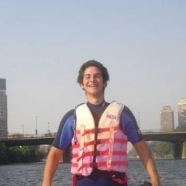





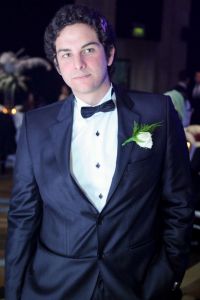
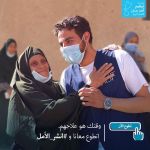
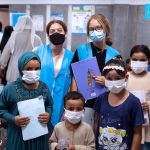
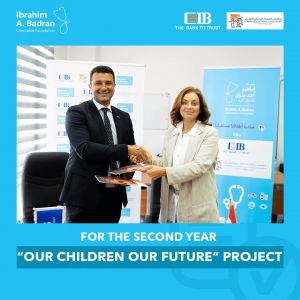
A sad but inspiring story given the challenges in Egypt.
Lots of Love and respect to the whole family and lots of prayers to ny dear friend and brother Ibrahim ❤
Inspiring story of once again a family turns a tragedy into good works for the many. Kudos to them!
A sadness with which I can identify – and a wonderful way to honor Ibrahim’s life.
A sad but wonderful story. God has His master plan.
A great man and family. RIP Ibrahim Badran!